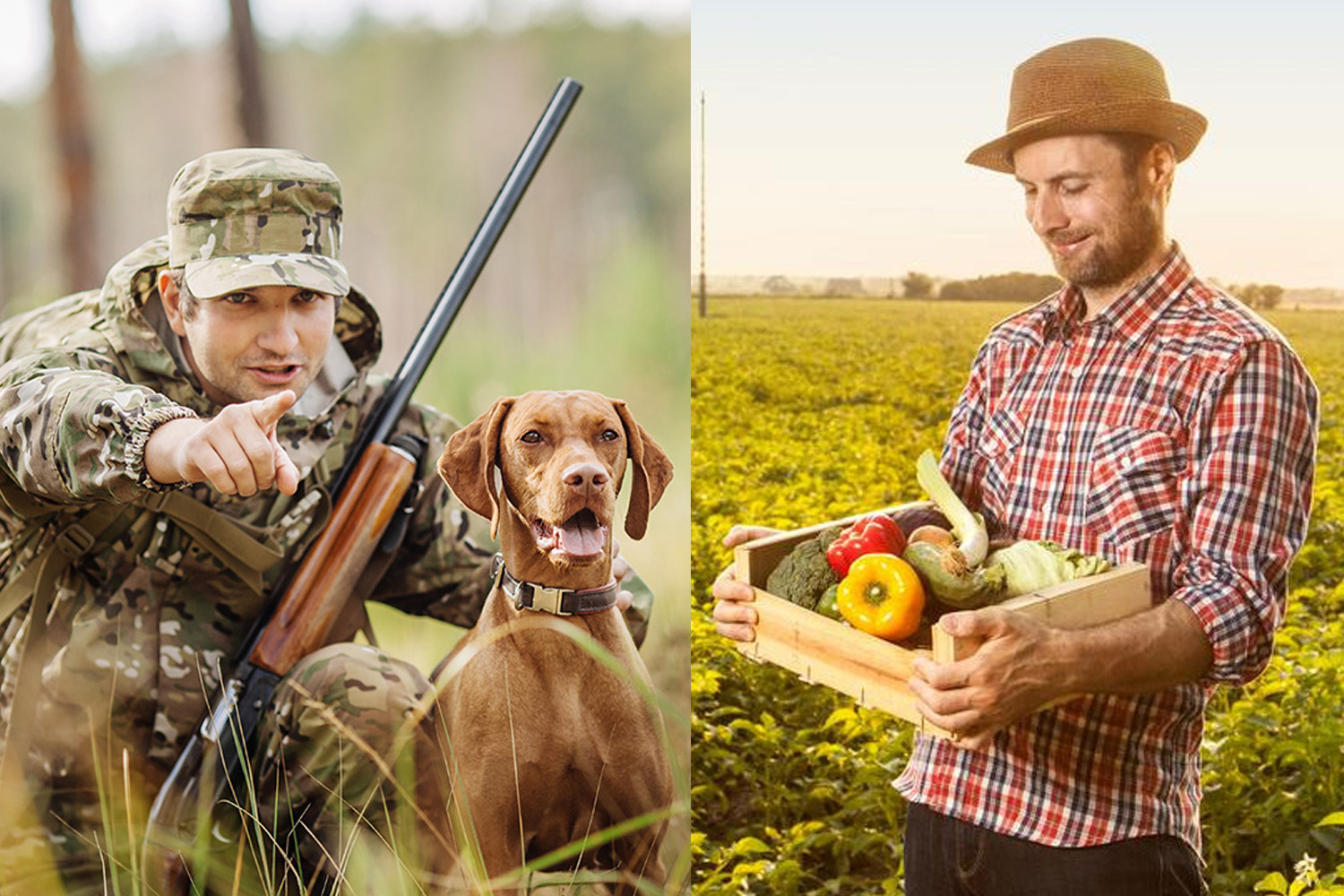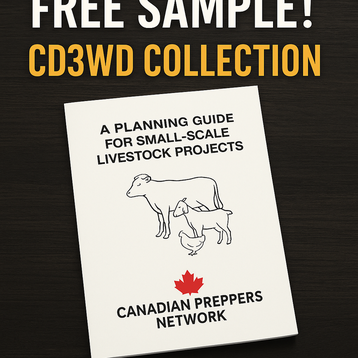For preppers, securing a reliable and sustainable food source is one of the most critical aspects of survival. Two of the most common methods for food procurement—hunting and farming—each have their own advantages and challenges. While some preppers may lean heavily toward one or the other, a well-balanced survival plan often incorporates elements of both. In this post, we’ll explore the pros and cons of hunting versus farming to help you determine which is best suited for your situation.
Hunting for Survival
Advantages of Hunting:
- Nutrient-Dense Protein Source – Wild game, such as deer, rabbit, and fish, provides a rich source of protein and essential fats that are crucial for long-term survival.
- No Need for Land Cultivation – Unlike farming, hunting doesn’t require clearing land, tilling soil, or maintaining crops. This makes it an attractive option for those in heavily forested or remote areas.
- Seasonal Availability – Certain game animals are more active and abundant during specific seasons, potentially providing a reliable food source year-round.
- Mobility and Flexibility – Hunting allows for a nomadic lifestyle, making it a viable option for preppers who may need to relocate frequently.
Challenges of Hunting:
- Requires Skill and Equipment – Successful hunting demands knowledge of animal behavior, tracking, and marksmanship, as well as the right weapons and tools.
- Unpredictability – Game availability can be inconsistent due to migration patterns, overhunting, or environmental changes.
- Regulations and Legal Restrictions – In peacetime, hunting laws and licensing requirements can limit opportunities, making it essential to understand local regulations.
- High Energy Expenditure – Hunting often requires significant physical effort and stamina, from tracking to field dressing and transporting game.
Farming for Sustainability
Advantages of Farming:
- Steady and Predictable Food Supply – A well-maintained farm can provide a continuous source of fruits, vegetables, grains, and livestock products.
- Self-Sufficiency and Trade Opportunities – Surplus crops and livestock can be used for bartering or feeding a larger survival group.
- Diverse Diet and Nutrition – Unlike hunting, which is primarily meat-focused, farming enables a balanced diet with vitamins, fiber, and carbohydrates.
- Long-Term Stability – Farming establishes a long-term, sustainable way to provide food without depleting natural resources.
Challenges of Farming:
- Land and Resource Requirements – Farming requires fertile land, water access, and maintenance, which can be limiting factors depending on location.
- Time-Intensive – Crops and livestock take time to grow and require consistent care, leaving little room for quick solutions in an emergency.
- Vulnerability to Environmental Factors – Drought, pests, and natural disasters can wipe out entire harvests, making farming risky without proper planning.
- Security Risks – A farm’s fixed location makes it a potential target for looters, requiring extra security measures.
The Ideal Approach: A Hybrid Strategy
While both hunting and farming have their respective strengths and weaknesses, the most effective food procurement strategy for preppers is a combination of the two. Farming provides a dependable source of staple foods, while hunting supplements the diet with protein and fats.
For optimal results, consider:
- Small-scale farming and permaculture techniques to minimize labor and maximize output.
- Raising small livestock like chickens, rabbits, or goats for a renewable protein source.
- Mastering hunting and trapping skills to take advantage of available wild game without over-reliance on a single method.
- Foraging and fishing to add further diversity and resilience to your food supply.
By integrating hunting and farming into your preparedness plan, you’ll create a more sustainable and resilient food procurement system that can withstand challenges and changing conditions. Whether you live in a remote wilderness or a rural homestead, understanding both methods will help you survive and thrive in any situation.






